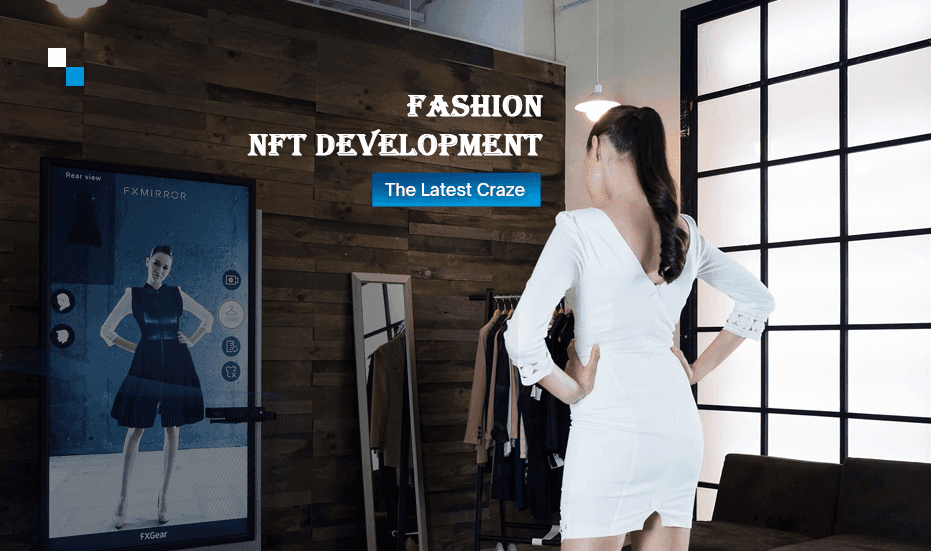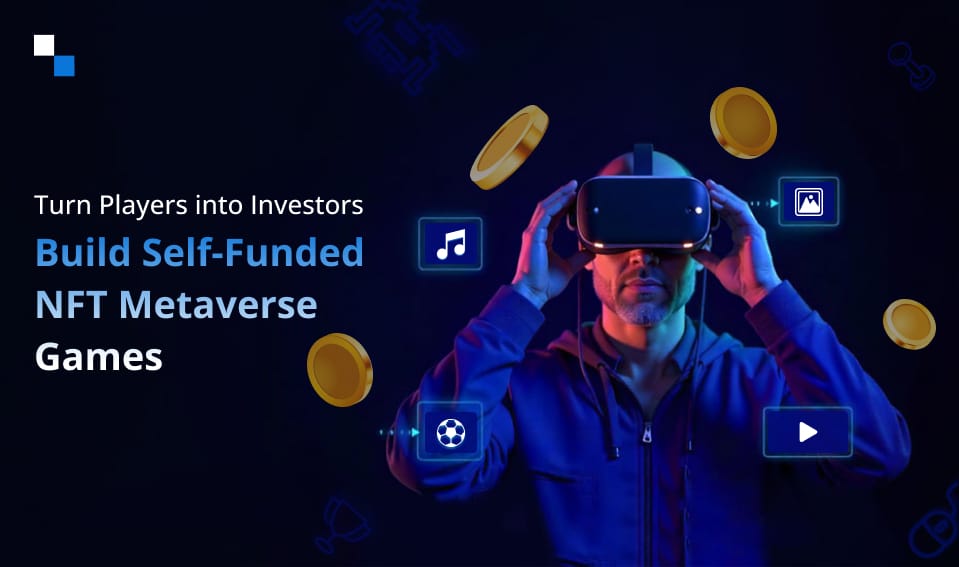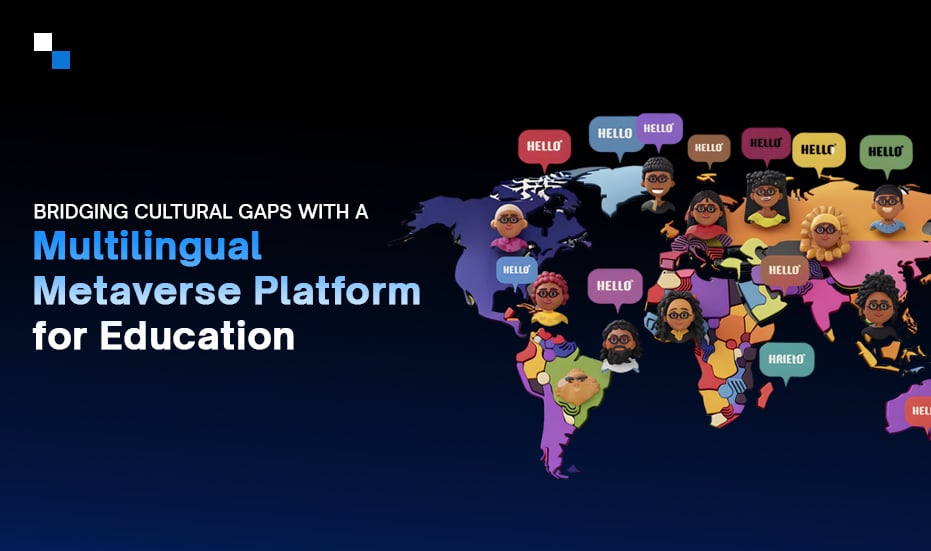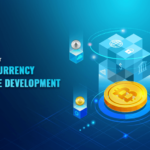
Start Your Own Project With Cryptocurrency Exchange Software Development!
September 9, 2022
The Future of Fashion – Metaverse is Reshaping the Fashion Industry
September 13, 2022NFTs have gained a lot of traction in the NFT (non fungible token) fashion industry. Yes, critics may still argue that NFTs are “superfluous,” but fashion firms don’t appear to have gotten the signal as an increasing number of them are starting to use these ownership tokens in their designs and new products.
One of the significant advantages of the fashion industry’s adoption of NFTs has been that it has helped it draw in new buyers who wouldn’t have otherwise placed orders from specific brands. This link may also work the other way, with fashion introducing new users to NFTs and cryptocurrency, as at least many fashion houses have begun to recognize NFTs as a changing landscape.
By providing insights into consumer behavior, retaining lifelong ownership of readily available, authenticated assets, and a trading platform for fashion industry creators and users, NFTs offer a new range of possibilities to brand items and revolutionize how we view fashion.
After all, what is it all about fashion, NFTs, and technology coming together and making ripples by collecting reasonably high-value orders from NFTs and fashion enthusiasts? Let’s delve into the combined world of NFTs and the Fashion landscape.
About NFTs
Digital assets known as NFTs (Non-Fungible Tokens) are distinct but lack a tangible form. These character-based tokens confirm a design’s or artwork’s authorship and can be bought using cryptos. NFTs cannot be regenerated if misplaced, contrary to fungible digital currencies.
The conversion of intangible assets, such as digital money, into tangible ones, is made possible via NFTs. The blockchain maintains a digital record of every trade that has ever occurred. A trade backed by the blockchain is also irrevocable because the ledger cannot be amended after it is logged.
NFTs Enabling Fashion Brands
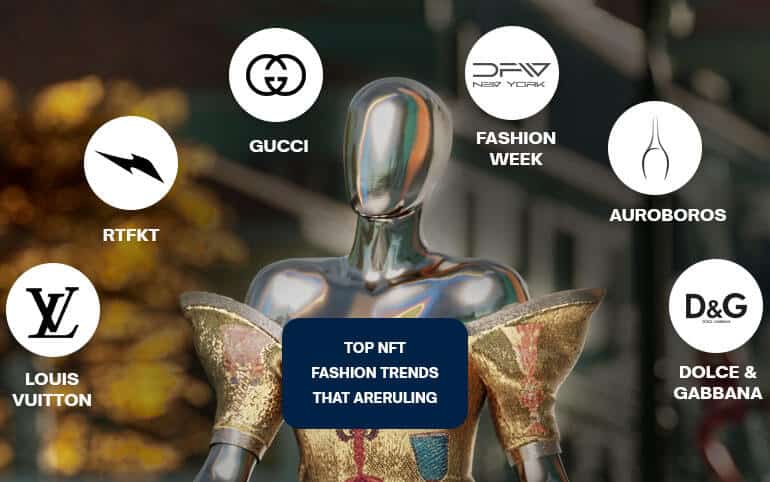
The Fabricant’s shimmering outfit, purchased at the corresponding value of $9,500 in May 2019, is the earliest fashion NFT to be traded on the NFT market. Gucci’s Aria video was the first premium brand to participate; it sold at auction for $25,000 in May 2021.
Let’s take a look at some of the prominent brands leveraging NFTs for their benefit.
-
- Gucci: One of the high-end clothing companies that were the first to enter the NFTs market is Gucci. Although the Italian design house’s clothing was not used to style the NFT, Alessandro Michele’s “Aria” collection served as inspiration. The movie brought $25,000,000,000 at auction.
- RTFKT: A renowned fashion brand, RTFKT, collaborated with ‘Fewocious’, a crypto artist, and began selling virtual sneakers in 2021.
- Louis Vuitton: Louis Vuitton entered the world of NFTs on the occasion of its 200th anniversary by introducing “Louis The Game”. In this game developed by Louis Vuitton, gamers obtain NFTs made by renowned NFT developer Beeple.
- Fashion Week: The eruption of the Covid-19 pandemic changed the way Fashion Week started looking at the use of NFTs. The French Fashion and Haute Couture Federation entered into a partnership to launch the “Arianne” platform for developing NFTs that could become an easy mode of payment during the men’s summer fashion week 2022 in Paris.
- Dolce and Gabbana: Dolce & Gabbana launched a 9piece collection in the recent past. Similarly, Auroboros uses biomimicry concepts and its unique collection of NFTs can be purchased through Decentraland. Collezione Genesi, an NFT collection, was exclusively launched on the Polygon blockchain.
- Ralph Lauren: Created the Ralph Lauren Winter Escape collection, a holiday-themed festival with virtual clothing, in collaboration with Roblox. Additionally, the business has hinted at polo NFTs and metaverse fashion events.
How Are The Famous NFT Fashion Brands Using the NFT Trend For Making Profits?
Let’s explore various facets of NFTs that enable fashion brands to take a digital route while they cater to their customers effectively.
- Augmented Reality in Fashion
 Clothing manufacturers and retailers can benefit significantly from augmented reality (AR), which employs smartphone software and displays digital products combined with users’ actual environment.
Clothing manufacturers and retailers can benefit significantly from augmented reality (AR), which employs smartphone software and displays digital products combined with users’ actual environment.
When an app has AR clothes fitting capabilities, one can use the smartphone while the software simulates how the garments would seem on your frame. In an AR changing room, it’s simple that you won’t be able to ascertain the fitting of an outfit on your body, but you can quickly model dozens of different outfits. This is very helpful when purchasing online. NFTs enable the buyers further by allowing them to determine how the outfit would look on them, and they can own it digitally in case it is a limited edition label.
- Metaverse Fashion
Metaverse Fashion is an immersive virtual world in which the digital world allows users to engage in real-life experiences with the help of Web 3.0 technologies. NFTs play a significant role in this, and fashion brands can expand their digital brand within the digital realm. The collectors, NFT enthusiasts roaming these virtual worlds, would love to experience premium clothing and accessories. Experiencing a metaverse outfit virtually evolves another product line for fashion brands looking to expand further. NFTs can be utilized in the fashion industry to verify articles or act as standalone collectibles. Additionally, there has been a surge in interest over the past year, notably among rich players and online. For its 200th anniversary, Louis Vuitton released a video game with collectible NFTs primarily designed by Beeple. - Virtual stores
 A virtual store is an online shopping experience enabled by VR and AR. Customers can view how a sofa might fit in space via smartphone augmented reality software or a virtual reality retail store. A unique technique to cross the boundary separating the offline and online worlds while giving clients customized and rewarding journeys is known as a virtual store.
A virtual store is an online shopping experience enabled by VR and AR. Customers can view how a sofa might fit in space via smartphone augmented reality software or a virtual reality retail store. A unique technique to cross the boundary separating the offline and online worlds while giving clients customized and rewarding journeys is known as a virtual store.

Although it makes sense to blame the pandemic’s challenges for the rise in prominence of online retailers, technology has also become a viable solution for satisfying even the most basic consumer demands. NFTs play a significant role in this category since they enable customers to acquire the goods & items virtually while roaming through these stores. Often, these stores offer special deals only on virtual stores where the most affluent segment of customers visit. Early bird offers and pre-launch members-only access are a few examples of such deals. Customers can roam into the stores after wearing AR/VR headsets.
- Fashion-Based NFT collection
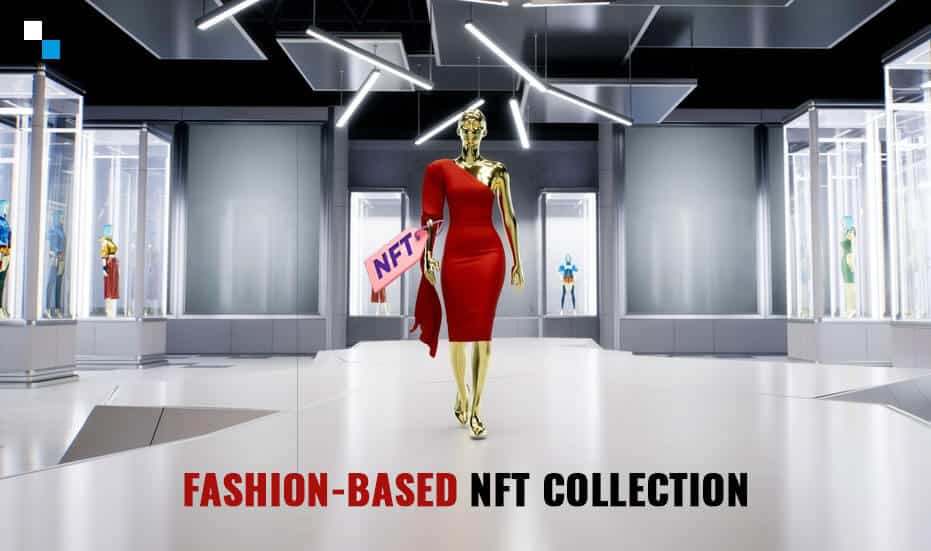 and interest in NFTs have swelled over the last few years, boosting the total valuation of NFTs. NFTin fashion collection has significance, and many brands have introduced their own fashion-based NFT collections. These collections are available for gamers who like gaming characters and online avatars wearing these fashion brands. Ralph Lauren in Roblox is one such example. They are not just available for gaming but are also launched on specific marketplaces to give these platforms exclusivity.
and interest in NFTs have swelled over the last few years, boosting the total valuation of NFTs. NFTin fashion collection has significance, and many brands have introduced their own fashion-based NFT collections. These collections are available for gamers who like gaming characters and online avatars wearing these fashion brands. Ralph Lauren in Roblox is one such example. They are not just available for gaming but are also launched on specific marketplaces to give these platforms exclusivity.
These are some prominent areas where NFTs are transforming the fashion industry and empowering brands with new avenues to generate sales.
In a nutshell, most customers want to feel secure in their product selection, that the pricing is fair, and that acquiring the product will be simple. Fashion brands are enabling customers to virtually try things and rapidly gather information about them while gaining highly interactive and engaging buying experiences. NFTs for Fashion help meet business goals and objectives far more rapidly and profitably.
Create your NFT Marketplace for Clothing & Fashion accessories
Schedule Free DemoConclusion
Web3 provides a fantastic new platform for fashion brands to interact with their audience and offer rewards that align with their shared goals. Virtual wearables, collaborations with Web3-native producers, NFT-based exclusive items, or potential metaverse encounters for luxury brand customers may all emerge from this.
Creative fashion designers are joining the expanding demand for NFTs with digital items, whether for PFP or character dressing. The sky is the limit with the NFTs.
As a responsible fashion brand, if you want to expand your business and cater to your customers beyond the boundaries of the conventional fashion industry, you must reach out to Antier, one of the top-notch NFT development companies to explore how it can help your fashion brand.
